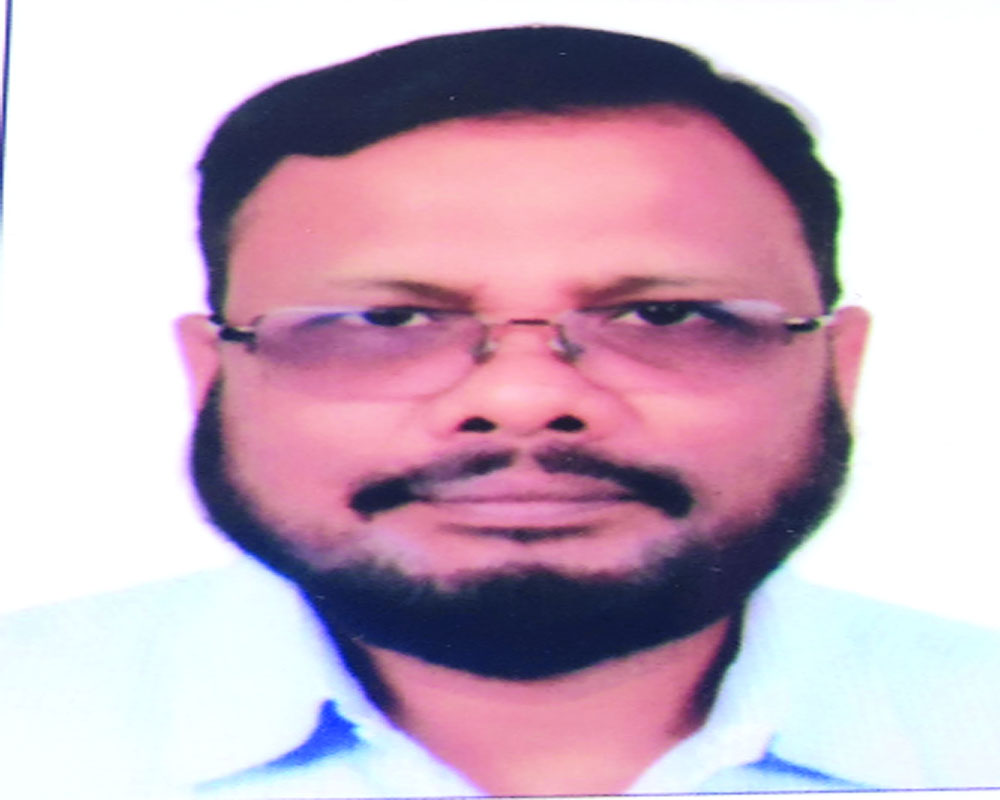For successful implementation of cancer control programmes, there is a need to create awareness among the general public and train healthcare professionals in diagnosing and referrals of cancer suspects at an early stage to reduce secondary complications.
Cancer is one of the emerging major public health issues that affect millions of people around the world, including India. In recent years, the incidence of cancer has been alarmingly rising in India.
As per the ICMR “National Cancer Registry Programme" data, approximately 3.65 million people are affected with cancer, 1.5 million new cases are diagnosed annually and nearly 0.8 million deaths reported due to cancer.
Tobacco consumption -- either chewing or smoking tobacco -- accounts for 50 per cent of the cancer in men, whereas poor dietary practices and reproductive and sexual practices account for 20-30 per cent of cancers.
More than 4 million people across the globe die prematurely due to illness attributable to household air pollution from cooking with solid fuels, while 6 per cent of these deaths are caused by lung cancer.
Indoor air pollution from coal fires doubles the risk of lung cancer, particularly among non-smoking women. Exposure to smoke from industry and vehicles, pesticides and insecticide sprays are the major contributors to the ever rising cancer burden in India.
Cancer needs a network of specialized infrastructures and human resources for its care. The Government of India has recently launched the Ayushman Bharat Yojana (ABY), which has two major components i.e. focus on strengthening primary healthcare through 1.5 lakh Health and Wellness Centres (HWCs); and Pradhan Mantri Jan Arogya Yojana (PMJAY) to provide secondary and tertiary levels of treatment. The HWCs focus on community-based screening for some common cancers, which could be a good opportunity to integrate cancer prevention and control into primary healthcare services in the country. Cancer control in India has made considerable progress in the last four decades since the Indian Council of Medical Research (ICMR) launched the National Cancer Registry (NCR) Programme in 1982.
The shift from treatment to broader prevention and control was emphasised when the Government of India launched the National Programme for Prevention and Control of Cancer, Diabetes, Cardiovascular Diseases, and Stroke (NPCDCS) in 2010 which proposed the preventive, promotive, curative and rehabilitative care to cancer patients at all levels of the healthcare system.
India is experiencing a rapid health transition with rising burden of Non-Communicable Diseases (NCDs) which is one of the major challenges to public health in India in the 21st century. More than 60 lakh Indians are dying every year due to cardiovascular diseases, cancer, diabetes and other NCDs. Burden of NCDs and resultant mortality is likely to witness an upward rise unless efforts are made to prevent and control them and their risk factors. There is an urgent need to focus on health promotion and preventive measures to reduce the exposure to risk factors.
Population-based screening for adults above 30 years of age has been established to screen for cervical, oral, and breast cancer every 5 years by Accredited Social Health Activists (ASHAs) and Auxiliary Nurse-Midwives (ANMs). The program envisages control of tobacco-related cancers; early diagnosis and treatment of oral, breast & cervical cancer; and distribution of therapy services, pain relief, and palliative care through augmentation of health infrastructure.
The need for a community component in cancer prevention was felt when it was realized that the key challenges in early diagnosis and treatment of cancer are related to the patients receiving wrong information, having poor knowledge, no trust in public health services, and a weak cancer health infrastructure. One of the commonly missing parts of health program implementation in India is missing community or people’s participation, which essentially starts with community mobilization and awareness generation among citizens. The method of early detection of cancers in symptomatic individuals is a more practical approach. However, for its successful implementation, there is a need to create awareness among the general public and train healthcare professionals in diagnosing and referrals of cancer suspects at an early stage to reduce secondary complications. Appropriate changes in lifestyle and maintaining healthy dietary practices can reduce the mortality and morbidity from cancer.
So, let’s join hands to protect ourselves and our loved ones from the dreaded cancer and make India a healthy and prosperous nation!
(The author is the Deputy Director General (NPCDCS), Dte.GHS, Union Ministry of Health & Family Welfare.)


























